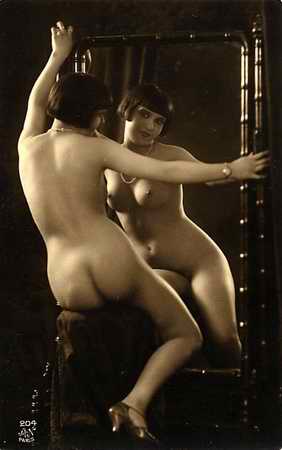The Lost Generation

The "Lost Generation" was really all over by the time Anaïs Nin finally managed to get something going in the early 1930's... But were they really lost? It's a vanity expression really.
The expression derives from Hemingway, shown above, who attributed it to Gertrude Stein, in The Sun Also Rises (1926). Like in the novel, they were referring to those who had survived World War I, but who were uncomfortable in peacetime life. In its narrow sense it came to refer to the American expatriates who hung around the cafés and bars of Montparnasse on the Left Bank. Perhaps they were fleeing Prohibition and materialism in America and perhaps they indulged in too much alcohol while they dreamed of being artists and writers, but it was the same with the Russian, Spanish and other emigres.
Each generation gets to be called lost, but this "Lost Generation" is romanticized because they were writing about an America or England or an Ireland or Russia they rejected. Some remained lost of course (F. Scott Fitzgerald especially), but it would be equally true to say that others "found" themselves in Paris (Stein, Miller, Nin). Unfortunately many also retained their deep-seated superiority complex toward a French culture that barely touched them. That said, writers who stayed in America - Dreiser, Sherwood Anderson, Wallace Stevens, even Sinclair Lewis, with their tell-tale divorces and estrangements - could have done with a few trips to Paris. Look what they were missing...

That's Kiki of Montparnasse, a local legend captured here by erotic photographer Julian Mandel. It is an old question: is it better to be worldly wise abroad or to be frustrated but comfortable back home? Older rich cynics like Edith Wharton thought the younger writers would have been better off staying in America but she stayed in France herself.
Needless to say The Lost Generation had negligible influence on French culture until the 1940's when their books first were translated into French. The real movers and shakers back then were in the film industry: Chaplin, Fairbanks.
